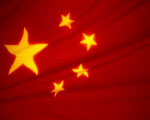 Reuters: Chinese Premier Wen Jiabao defended his country’s extensive oil trade with Iran against Western sanctions pressure in comments published on Thursday, and yet also warned Tehran against any effort to acquire nuclear weapons.
Reuters: Chinese Premier Wen Jiabao defended his country’s extensive oil trade with Iran against Western sanctions pressure in comments published on Thursday, and yet also warned Tehran against any effort to acquire nuclear weapons.
By Chris Buckley
 BEIJING (Reuters) – Chinese Premier Wen Jiabao defended his country’s extensive oil trade with Iran against Western sanctions pressure in comments published on Thursday, and yet also warned Tehran against any effort to acquire nuclear weapons.
BEIJING (Reuters) – Chinese Premier Wen Jiabao defended his country’s extensive oil trade with Iran against Western sanctions pressure in comments published on Thursday, and yet also warned Tehran against any effort to acquire nuclear weapons.
Wen spoke on Wednesday at the end of a six-day visit to the Middle East, against a backdrop of tensions over possible U.S. sanctions on nations that do energy trade with Iran, which Western powers say is focused on developing nuclear weapons.
Iran has insisted its nuclear goals are peaceful, and in late December threatened to punish the latest Western sanctions by choking off oil flows through the Strait of Hormuz, a vital route for much of the Middle East’s oil exports.
“China adamantly opposes Iran developing and possessing nuclear weapons,” said Wen, and he warned against potential confrontation in the Strait of Hormuz. Beijing is usually much more coy in public about saying Iran could want nuclear arms.
Speaking at a news conference in Doha, Wen also took aim at both potential threats to China’s oil imports: the U.S. sanctions pressure and the Hormuz tensions.
“I also want to clearly point out that China’s oil trade with Iran is normal trade activity,” he said in response to a question about U.S. and European efforts to curtail Iranian oil exports and revenues, according to a transcript on the Chinese Foreign Ministry’s website (www.mfa.gov.cn).
“Legitimate trade should be protected, otherwise the world economic order would fall into turmoil,” he added.
But Wen shrugged off worry about China’s oil needs.
“I don’t have this or that worry about China’s oil supplies, and this time I didn’t discuss this issue with the leaders of each country,” he told the news conference.
Wen visited Saudi Arabia, the United Arab Emirates and Qatar.
TRICKY PATH
The Chinese leader’s comments laid bare the tricky path Beijing is trying to steer between pressure from Washington and its allies and rival expectations from Iran, which looks to China as a sympathetic Third World power and a big oil customer.
Wen’s warning was not the first time China has openly stated its opposition to Iran possibly developing nuclear weapons; in 2010, the foreign ministry made the point at least twice.
“There have been similar statements (from China) before, and of course China has repeatedly voted in favour of resolutions over this issue in the U.N. Security Council,” said Yin Gang, an expert on the Middle East at the Chinese Academy of Social Sciences in Beijing.
“This time, Premier Wen made that point a bit more clearly than usual,” Yin told Reuters.
“The core of the Iran nuclear issue is whether or not it develops nuclear weapons. It’s not only the United States that worries about this. The Arab countries are even more worried.”
The tensions are a particular worry for China, the biggest buyer of Iranian oil, followed by India and Japan. Only Saudi Arabia and Angola sell more crude than Iran to China.
“We believe that, no matter what the circumstances, the security of the Gulf of Hormuz and normal shipping passage through it must be guaranteed, because this is in the interests of the whole world,” said Wen.
“Any extreme measures on this issue would violate the wishes of all countries in the world and their people.”
The Obama administration last week invoked U.S. law to sanction China’s state-run Zhuhai Zhenrong Corp, which it said was Iran’s largest supplier of refined petroleum products.
The United States is also working out how to enforce a law enacted on December 31 that targets foreign financial institutions doing business with Iran’s central bank, notably to buy crude.
China has backed U.N. Security Council resolutions calling on Iran to halt uranium enrichment activities, while working to ensure its energy ties are not threatened.
In the first 11 months of 2011, Chinese crude imports from Iran were at about 553,000 barrels per day, a gain of nearly 30 percent on the same period a year before, according to Chinese customs data.
“There’s no doubt that China and Iran maintain normal trade relations, but we certainly won’t abandon principles for the sake of doing deals,” said Wen.
(Reporting by Chris Buckley; Editing by Sanjeev Miglani)


